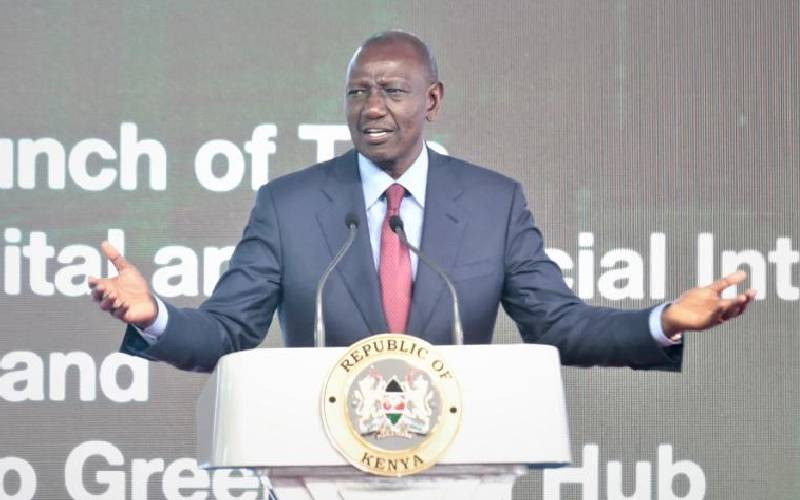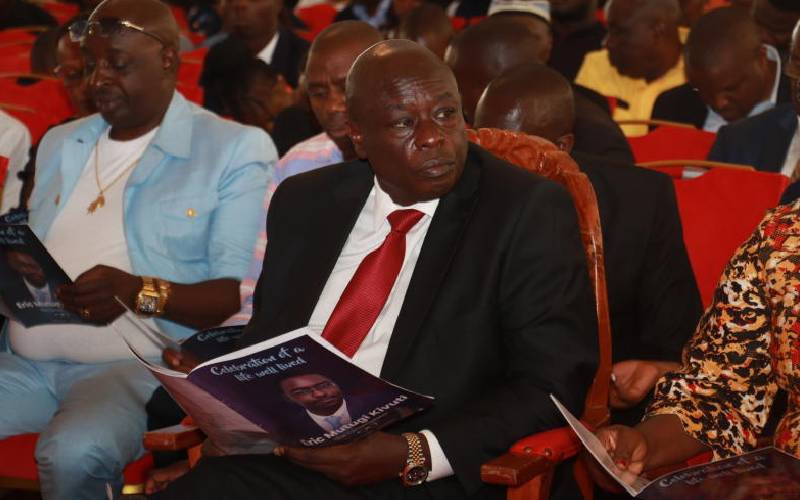Last week, online streaming firm Netflix released a new feature that allows subscribers to randomly select a show recommended by the algorithm from their past viewing history.
Rather than agonise over what series or movie to watch from the platform’s 13,900 titles, subscribers only need to hit a “shuffle” button, and the algorithm will bring up options they are likely to enjoy.
This comes at a time when many of the platform’s 167 million global subscribers are holed up at home owing to movement restrictions introduced to curb the spread of the coronavirus pandemic.
For the global pay-TV industry, the disruption of Covid-19 has brought a mixed bag of fortunes and accelerated a digital shift that was at least several years in the making.
Like in other developing markets, leading pay-TV service providers in Kenya like MultiChoice and StarTimes have been hit by stagnant, and in some cases declining, subscriber numbers as more viewers opt for digital video platforms like Netflix and YouTube.
“In Kenya, aggressive competitive activity at the lower end of the market initially affected our DTT (digital terrestrial television) subscriber growth,” said MultiChoice in its latest financial results released last month.
“However, our price-down campaigns stabilised our position and supported strong growth of 16 per cent in our DTH (direct to home) business, resulting in our 90-day active subscribers being flat for the year.”
Although MultiChoice Group does not provide country-specific information on the number of its subscribers in the rest of Africa in its financial reports, Kenya accounts for a big part of its market.
According to the firm’s latest annual report, Kenya accounts for 11 per cent of MultiChoice Group total subscriber revenues from the rest of Africa.
This segment accounted for 30 per cent of the Sh282 billion in subscriber revenues the company raked in during the last financial year.
This means the Kenyan market is worth at least Sh9.3 billion in annual revenues to the South African pay-TV giant.
However, the firm’s financial data indicates the numbers of subscribers has been stagnant over the past two years.
In its notes to investors, MultiChoice laid out the challenges facing the pay-TV sector not just in the continent but globally.
“The global video entertainment industry continues evolving as new technologies and business models provide opportunities to differentiate service offerings,” explained the firm in its latest financial statements.
“A key trend is the ongoing impact of streaming services (OTT) in disrupting traditional linear pay-TV operators. “This presents both risks, in the form of increased competition for subscribers and content, and opportunities for us to scale our OTT services and adapt our business model. As the industry evolves, our investment in local content remains a key differentiator and strategic advantage.”
Stay informed. Subscribe to our newsletter
Last month, MultiChoice announced DStv prices will go up by 14 per cent starting today on the back of increased costs, a move that has irked some subscribers who have taken to social media to express their displeasure.
At the same time, a more urgent disruption comes from the likes of Netflix, the online streaming behemoth that had started causing ripples in the continent’s entertainment market long before the coronavirus pandemic struck.
In February this year, Queen Sono premiered on Netflix to viewers globally. The series follows the adventures of a South African spy, exploring dangerous missions and a complicated social life through urban Johannesburg. Queen Sono is the first of Netflix’s original series from Africa and what the firm views as the beginning of mainstreaming African content on the platform that has traditionally been dominated by European and North American content.
Netflix Original Series, responsible for iconic shows like House of Cards, Orange Is the New Black and Bo Jack Horseman, reportedly accounted for more than two-thirds of the firm’s Sh1.3 trillion content acquisition cost last year alone.
Netflix’s best growth opportunity in terms of subscribers and revenues, however, resides on the continent.
According to the company’s results for the 2019/20 financial year, average paying members in the US and Canada registered an eight per cent rise from the number reported in 2018.
In Europe, the Middle East and Africa, the growth stood at 37 per cent over the same period, while revenues in this region grew 40 per cent.
In December last year, the company named Kenyan film producer Dorothy Ghettuba as the Head of African Original Programming.
In a recent interview with the media, Ghettuba, who works from Netflix’s Amsterdam office, said the company was actively looking to acquire local content amidst the pandemic.
“This is the best time to find stories, so I have not slowed down,” she said in a recent interview with the media.
“We truly believe in the talent in Africa, and it’s been about meeting writers, looking at scripts and finding the best stories that are out there.”
A veteran player in Kenya’s film and television industry, Ghetubba said infrastructural challenges like stable power supply and affordable data make it difficult for service providers to reach more potential subscribers across Africa.
“This is a big challenge across many African countries so we are just trying to find solutions, trying to see how do we make our data services as cost-effective as possible or even solutions where people can download if they are on a Wi-Fi connection,” she said.
The company’s deep pockets enable it to acquire high-quality local programming that local broadcasters often find expensive. Netflix spent Sh166 billion on technology and development last year alone.
The platform is looking to grow the number of monthly active subscribers in Sub-Saharan Africa to five million by 2024 and a big chunk of this audience is expected to come from the Kenyan market.
In anticipation of this, pay-TV providers MultiChoice and StarTimes have been bolstering their content offering through partnerships that will entice subscribers to hang on to their decoders.
Last month, MultiChoice group announced a partnership with Walt Disney Company Africa that will bring popular channels, including two 24-hour ESPN sports channels synonymous with popular American leagues, such as the National Basketball Association (NBA).
[email protected]
 The Standard Group Plc is a
multi-media organization with investments in media platforms spanning newspaper
print operations, television, radio broadcasting, digital and online services. The
Standard Group is recognized as a leading multi-media house in Kenya with a key
influence in matters of national and international interest.
The Standard Group Plc is a
multi-media organization with investments in media platforms spanning newspaper
print operations, television, radio broadcasting, digital and online services. The
Standard Group is recognized as a leading multi-media house in Kenya with a key
influence in matters of national and international interest.
 The Standard Group Plc is a
multi-media organization with investments in media platforms spanning newspaper
print operations, television, radio broadcasting, digital and online services. The
Standard Group is recognized as a leading multi-media house in Kenya with a key
influence in matters of national and international interest.
The Standard Group Plc is a
multi-media organization with investments in media platforms spanning newspaper
print operations, television, radio broadcasting, digital and online services. The
Standard Group is recognized as a leading multi-media house in Kenya with a key
influence in matters of national and international interest.








